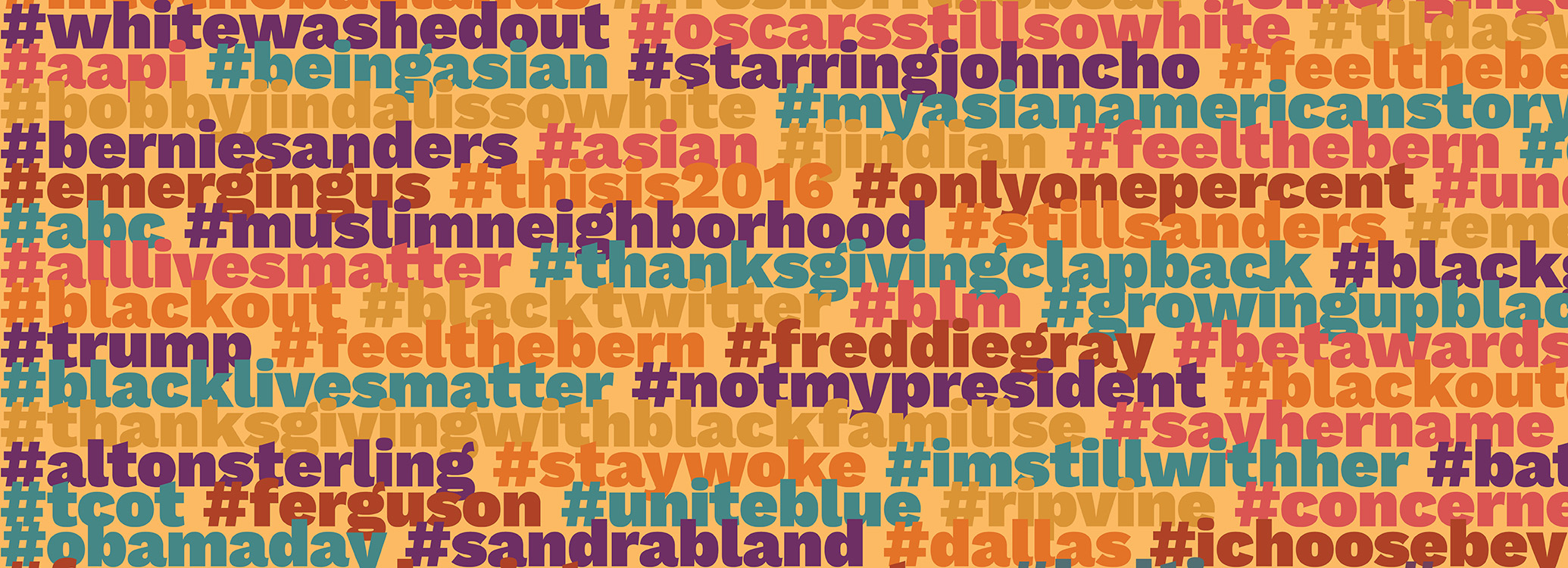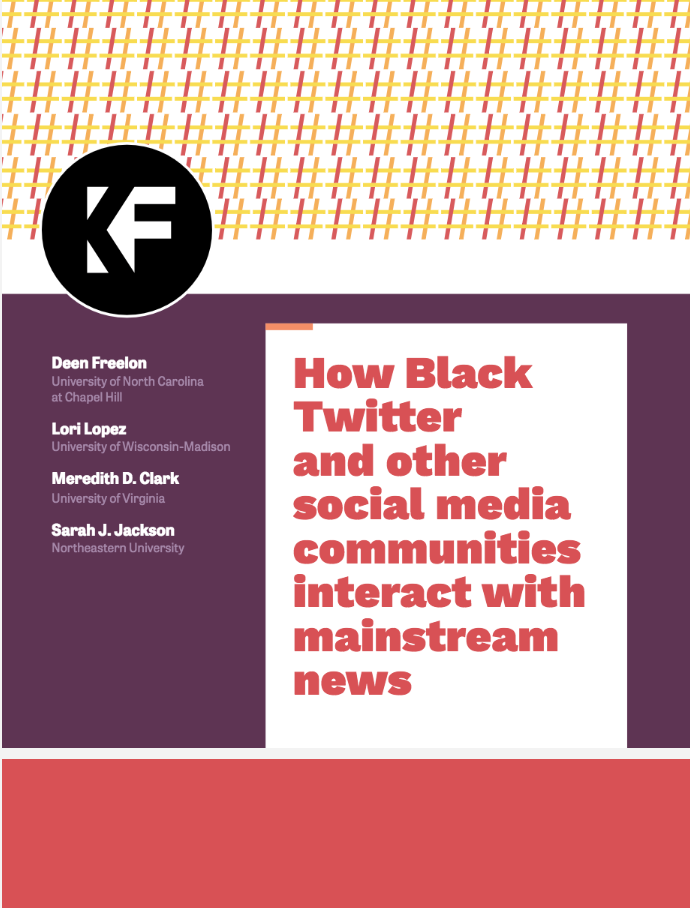
Toward advancing diversity in journalism
LaSharah Bunting is Knight Foundation director for journalism.
Many news organizations have come to understand that a meaningful relationship with audiences is crucial to their success. Yet that connection can be tenuous when a newsroom does not reflect the communities it serves in its staff and coverage. Deeper understanding of the audience can lead to broader reach, improved trust and stronger journalism. But thoughtful and authentic engagement, especially with diverse audiences, is still not quite where it needs to be.
A new report, commissioned by Knight Foundation, explores how social media subcultures – Black Twitter, Feminist Twitter and Asian-American Twitter – interact with the news media, and reveals how a fractured relationship among the communities and the media has led to low levels of trust. The report also offers a number of recommendations for improving that relationship, among them: improve engagement and transparency; work to better understand community needs; re-examine how stories are covered and sourced; and commit to recruiting and retaining diverse talent.
This research builds on Knight Foundation’s ambitious efforts to advance diversity and inclusion in journalism and support meaningful engagement with readers. These areas of focus are central to our work, and fundamental to our belief that quality journalism should reflect the diversity of our communities.
Increasing diversity in newsrooms is among the biggest challenges facing the industry, and progress remains slow. In the most recent American Society of News Editors annual newsroom diversity survey, funded in part by Knight, people of color made up 16.5 percent of those surveyed, down slightly from the previous year. And diversity among newsroom leadership, which increased slightly, stands at 13.4 percent people of color and 38.9 percent women.
Providing a new generation of journalists of color with access, exposure and real-world experience is a vital step in addressing these issues. Knight supports student newsroom projects at the annual conventions for the National Association for Hispanic Journalists and the National Association for Black Journalists as well as the HBCU Digital Media Fellowship at the Online News Association conference.
The Knight-CUNYJ Diversity Initiative, based at the City University of New York Graduate School of Journalism, offers summer internships to about 20 students from around the country. The top five performers receive free tuition to earn their master’s degrees at CUNY, if they apply and are accepted.
It’s not enough to get people in the door for their first job; there must be also be concentrated efforts on training and advancement. Knight has long supported programs with the goal to develop leaders who are equipped to lead during these evolving times, including ASNE’s Emerging Leaders Institute and the Asian American Journalists Association’s Executive Leadership and media entrepreneurship programs. Poynter’s Leadership Academy for Women in Digital Media and ONA’s Women’s Leadership Accelerator, both sponsored in part by Knight, are cultivating the next generation of female digital leaders in media.
In specialized areas of journalism, the numbers of journalists of color can often be even lower than the industry norm. The Ida B. Wells Society, with funding from Knight, is working to diversify the ranks of investigative journalists and increase accountability reporting on issues affecting communities of color through its fellowship program, bootcamps and workshops.
While a diverse staff is important to improving the relationship with the audience and ensuring relevant coverage, newsrooms must also commit to listening to and engaging with readers on a regular basis.
In an effort to reach those just learning the craft, Maynard Institute for Journalism Education, with help from Knight, is creating a cultural competency program for journalism students that will help them better report on issues of race, gender and class. The goal is to spread the program to journalism schools across the country.
Knight Foundation has also supported the use of digital tools as a way to tap into the needs of the community and increase the diversity of voices. The Coral Project, with Knight as an early backer, has been developing open-source tools and guides for newsrooms to connect with readers. The recently launched Community Listening and Engagement Fund, a new grant-making initiative from Knight and other funders, subsidizes the costs for newsrooms to adopt tools – Hearken and GroundSource – to listen to and work with the public.
And while audience engagement in newsrooms has evolved in the last few years, there’s been no structured way to connect with others doing similar work. Gather, funded by Knight, is a project and interactive platform that supports community-minded journalists who want to advance engaged journalism, share best practices and provide mentorship and support.
Journalism needs all voices. We encourage you to use the report to develop a better understanding of diverse audiences, re-examine current practices and build newsrooms that are inclusive and equipped to serve all communities.
On March 8 Knight Foundation will host a Twitter chat at noon E.T. to answer questions about the report and connect with people around ways to strengthen the relationship between journalists and these communities. And on March 26 Knight will host an event in New York in collaboration with Postlight; the event will be streamed live on Knight’s Twitter page starting 3 p.m. ET.
r
-
-
Journalism / Article
-
Information and Society / Report
Recent Content
-
Journalismarticle ·
-
Journalismarticle ·
-
Journalismarticle ·




